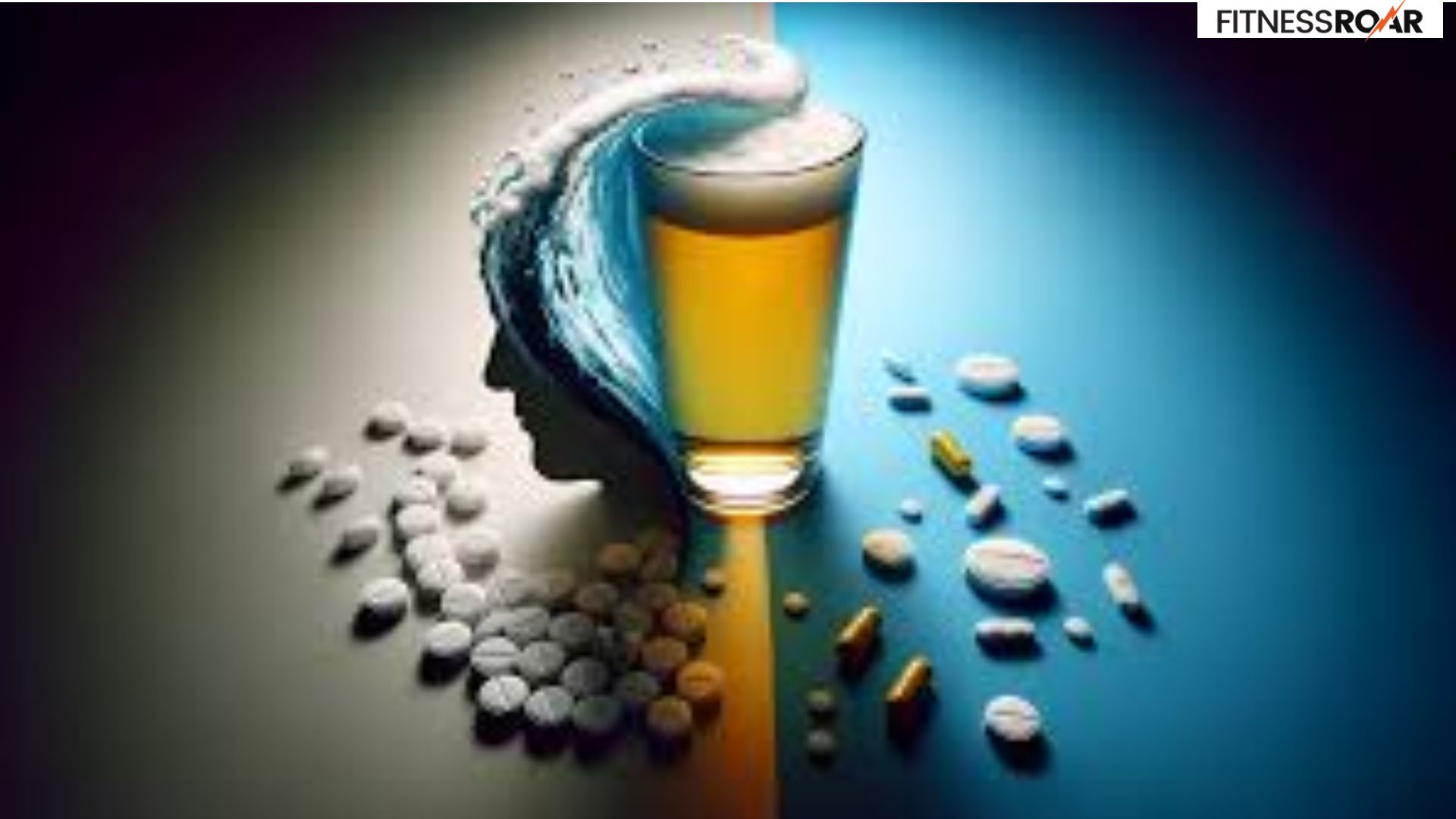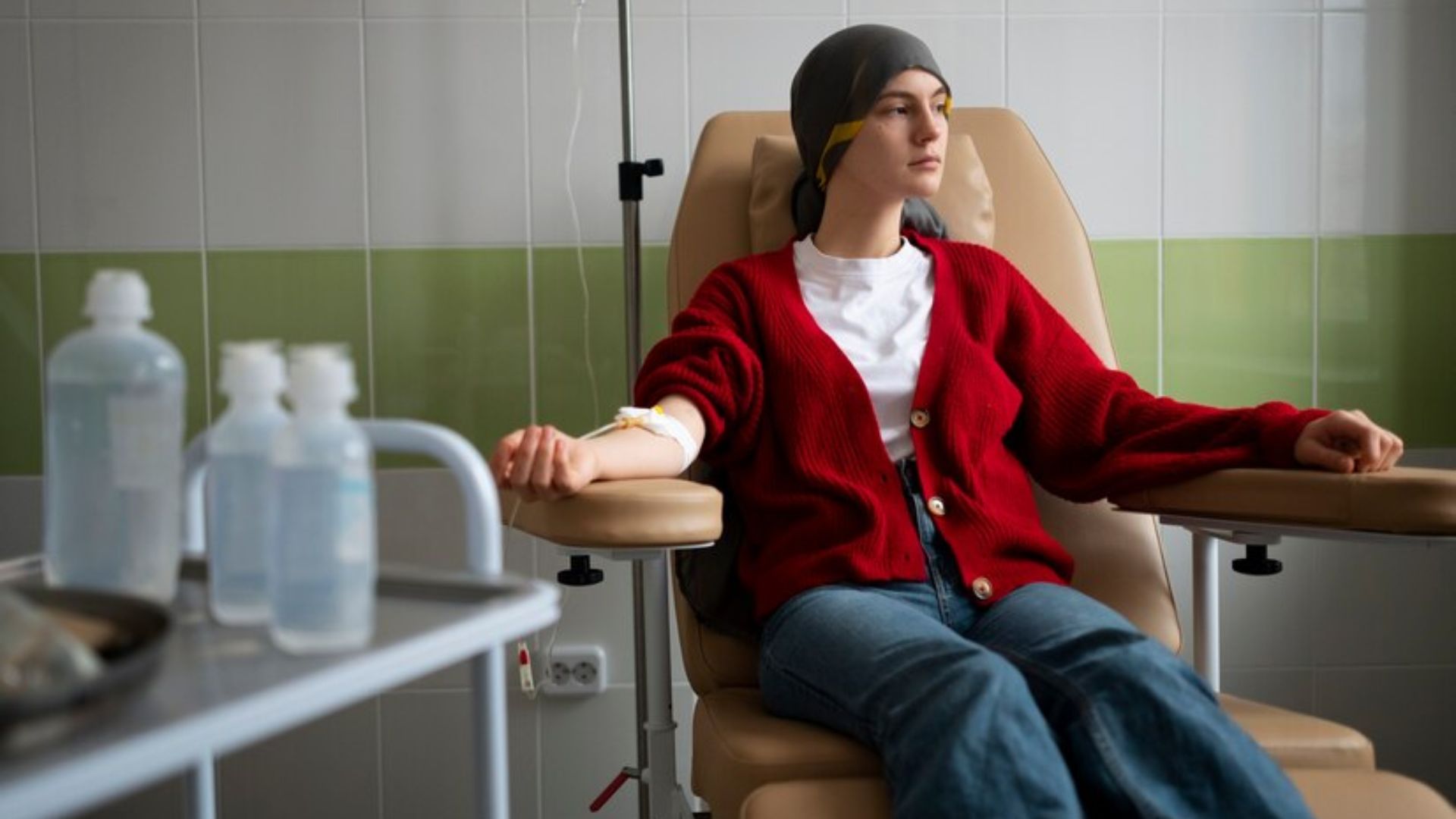Buspar and Alcohol: What You Need to Know

Buspar (buspirone) is a medication commonly prescribed to treat anxiety disorders. Unlike some anti-anxiety medications, Buspar doesn’t belong to the benzodiazepine class, which can be habit-forming. It works differently in the brain to produce a calming effect.
While Buspar offers relief for anxiety, there’s a crucial point to consider: it should not be combined with alcohol. This combination can be risky for several reasons, and we’ll explore those next.
Also Read: Yoga Asanas for Relieving Stress
Is it Safe to Take Buspar with Alcohol?
Mixing Buspar and alcohol is generally not recommended due to potential interactions and increased side effects. Here’s a closer look at the risks:
Amplified CNS Depression: Both Buspar and alcohol are depressants, meaning they slow down the central nervous system (CNS). Combining them can significantly intensify this effect, leading to:
- Excessive drowsiness: This can impair your judgment, coordination, and reaction time, increasing the risk of accidents or injuries.
- Respiratory depression: In severe cases, slowed breathing can become dangerous.
- Impaired thinking: Confusion, difficulty concentrating, and problems with memory are all potential consequences.
- Worsened Side Effects: Buspar itself can cause side effects like dizziness, lightheadedness, and drowsiness. Alcohol can worsen these effects, making them more bothersome and potentially dangerous.
- Unpredictable Interactions: Everyone metabolizes substances differently. Mixing Buspar and alcohol can lead to unpredictable changes in how your body processes both substances. This can lead to even more severe side effects or alter the effectiveness of Buspar.
While some people might not experience serious side effects from a single drink while taking Buspar, it’s important to avoid this combination altogether. The risks are simply not worth it.
Side Effects and Risks
Mixing Buspar and alcohol can lead to a range of unwanted effects that impact your physical, cognitive, and behavioral well-being. Here’s a detailed breakdown of the potential consequences:
Physical Effects:
- Increased Sedation: Combining these substances can make you feel excessively drowsy, sluggish, and fatigued. This can impair your coordination and balance, increasing the risk of falls and accidents.
- Dizziness and Lightheadedness: This can be especially problematic when standing up or changing positions quickly, potentially leading to nausea or even fainting.
- Upset Stomach: Both Buspar and alcohol can irritate the stomach, leading to nausea, vomiting, and indigestion.
- Headaches: Combining these substances can worsen headaches or trigger new ones.
- Impaired Motor Skills: Reaction times and coordination can become significantly compromised, making it dangerous to drive or operate machinery.
Cognitive Effects:
- Confusion and Difficulty Thinking: Mixing Buspar and alcohol can cloud your thinking, making it difficult to concentrate, focus, and make sound decisions.
- Memory Problems: Both substances can negatively affect memory function, leading to difficulty recalling information or forming new memories.
- Impaired Judgment: Your ability to assess situations and make safe choices can become compromised, potentially leading to risky behavior.
Behavioral Effects:
- Increased Anxiety: Ironically, in some cases, this combination can actually worsen anxiety symptoms instead of alleviating them.
- Mood Swings and Irritability: You might experience unpredictable mood changes, becoming easily frustrated or agitated.
- Depression: In severe cases, combining Buspar and alcohol can contribute to feelings of depression.
Risks of Increased Sedation and Impairment:
One of the most concerning risks of mixing Buspar and alcohol is the heightened level of sedation. This can lead to:
- Slowed Breathing: In severe cases, slowed breathing can become dangerous, especially for those with respiratory problems.
- Impaired Coordination: This significantly increases the risk of accidents, injuries, and falls.
- Coma: In rare instances, especially with high doses of alcohol, a combination of Buspar and alcohol can lead to a coma-like state.
Remember: Even a small amount of alcohol can be risky when taking Buspar. It’s best to avoid this combination altogether to ensure your safety and well-being.
Also Read: Must Eat Raw Garlic
Understanding Interactions and Effects
Understanding how Buspar and alcohol interact in the body sheds light on why they shouldn’t be mixed. Here’s a breakdown of their individual effects and how they amplify each other:
Buspirone’s Calming Effect: Buspar works differently from many anti-anxiety medications. It doesn’t directly interact with GABA, a neurotransmitter that calms the nervous system. Instead, Buspar influences other neurotransmitters like serotonin, likely leading to a calming effect.
Alcohol’s Depressing Influence: Alcohol is a depressant. It binds to receptors in the brain, slowing down activity in the central nervous system (CNS). This is why alcohol produces feelings of relaxation and sedation.
The Amplified Effect: When you combine Buspar and alcohol, both substances target the CNS. Buspirone’s calming influence combines with alcohol’s depressant effect, creating a much stronger depressant effect than either substance alone. This is why the side effects of drowsiness, dizziness, and impaired thinking become significantly worse when taken together.
Unpredictable Changes: The way your body metabolizes Buspar can be affected by alcohol. This can lead to unpredictable changes in Buspar’s concentration in your bloodstream, potentially leading to even more severe side effects or reduced effectiveness of the medication.
The Bottom Line: The combined effects of Buspar and alcohol on the CNS are unpredictable and potentially dangerous. It’s best to avoid this combination altogether to ensure your safety and get the intended benefits from Buspar for managing anxiety.
Also Read: Top Winter Detox Super Foods
In Crux
If you’re taking Buspar to manage anxiety, it’s crucial to understand that alcohol is not a friend. Mixing the two can lead to a range of unwanted side effects, from drowsiness and dizziness to impaired thinking and even dangerous consequences like slowed breathing.
By following your doctor’s recommendations and avoiding Buspar with alcohol, you can experience the full benefits of your medication and maintain your overall health and safety.
How much did you like Our detailed Buspar and Alcohol Interaction? Please share your view in the comment box. Also, please share these Blogs with your friends on social media.
Recommended














